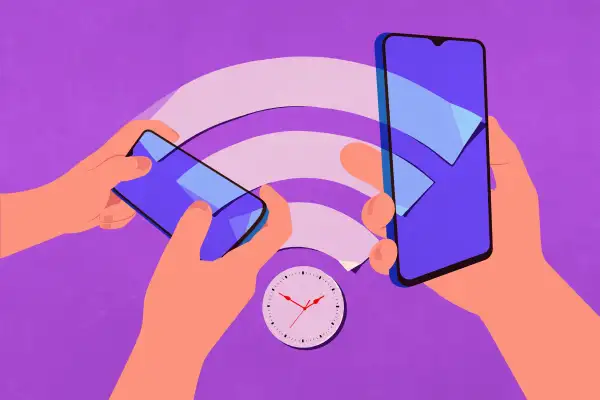Time Is Running Out to Register for Free Government Internet Plans

Due to dwindling funds, the federal government’s program for free or discounted broadband is closing applications next week.
After Feb. 7, the Federal Communications Commission says it will no longer enroll new applicants into the Affordable Connectivity Program, or ACP, unless Congress approves additional funding.
The ACP was created in 2021 as part of the $1.2 trillion bipartisan Infrastructure Investment and Jobs Act. The goal was to expand broadband internet access to millions of low-income Americans who either lack internet access entirely or do not have a stable connection.
The program subsidizes the cost of monthly internet bills by up to $30 (or $75 on tribal lands). After the ACP rolled out, several internet providers created $30-a-month plans, in effect giving free internet to folks who were approved for the government program.
Why the Affordable Connectivity Program could end soon
Over 22 million Americans have signed up for the ACP so far, according to federal figures, but the $14.2 billion that was allotted by the bipartisan infrastructure deal is running dry.
“We now appear on the brink of letting that success slip away,” FCC Chairwoman Jessica Rosenworcel said in an announcement early this month.
Next week, the FCC will close applications. Beneficiaries who are approved for the ACP subsidy and signed up in an internet plan by Feb. 7 will continue receiving the discount until funds completely run out, which could be as soon as April, according to FCC estimates. Advocates say the remaining money will deplete by May at the latest without additional funding.
After that happens, internet bills will increase by up to $30 per month for those enrolled. Internet service providers are required to clearly demonstrate on customers' bills how their monthly charges will be affected once the program ends.
Both FCC officials and advocacy groups have been raising the alarm over the looming cliff: “Disconnecting millions of families from their jobs, schools, markets and information is not the solution,” Rosenworcel said. “We have come too far with the ACP to turn back.”
Earlier this month, a bipartisan group of lawmakers introduced the Affordable Connectivity Program Extension Act in both chambers of Congress. The proposal seeks to infuse the ACP with $7 billion. So far, the bill has garnered broad support from over 400 groups — including many major telecom companies as well as the AARP and the American Civil Liberties Union — but has not yet come up to a vote in either chamber.
Broadband internet access is essential for modern life, according to Emily Drabinski, the president of the nonprofit American Library Association.
“If Congress lets this program expire, it’s deliberately deciding to imperil the best shot we have at closing the digital divide and truly connecting everyone to broadband,” she wrote in a recent editorial.
ACP enrollment hiccups
Despite providing broadband discounts to tons of low-income Americans, the ACP has been plagued by stringent qualifications and a lengthy application process.
Evan Marwell, founder of the nonprofit Education Super Highway, wrote in a report on ACP enrollment that adoption rates are “critically low.” Some 52 million Americans could qualify for the ACP, according to the latest enrollment figures from the organization, but only 43% have signed up nationally.
Several states have adoption rates far below the national average.
In North Dakota, for instance, only 14% of eligible households are enrolled in the ACP — the lowest adoption rate in the country. South Dakota isn’t far behind, with an enrollment rate of 17%. And less than 1 in 4 eligible residents in Idaho, Utah, Vermont, New Hampshire and Alaska have signed up for the ACP.
To qualify, applicants’ income can’t exceed 200% of the federal poverty line. For most states, that translates into maximum annual earnings of $29,160 for singles and $60,000 for a family of four. Applicants can also qualify if anyone in the household receives SNAP (aka food stamps), Medicaid, public housing assistance or a slew of other federal benefits.
Meeting basic qualifications is only the beginning. The Education Super Highway, an advocacy group focused on expanding high-speed internet access, identified 14 pain points that make the application process unnecessarily onerous.
For one, it says the application isn’t optimized for mobile devices and takes upwards of 45 minutes to complete. And once applicants do finish, they then have to wait for approval and then find an internet plan through a participating internet service provider.
Given that the application process is such a slog and the program’s future hinges on new funding from Congress, some people who stand to benefit are beginning to question whether it’s worth the effort, according to Drabinski of the American Library Association.
“They’re not wrong,” she wrote.
To apply and enroll, visit the Affordable Connectivity Program website before the Feb. 7 deadline.
More from Money:
A New Expanded Child Tax Credit Could Pass Soon — Here's Who Would Benefit
IRS Launches Free File for 2024 Tax Season With Historic Eligibility Expansion
Here's Where Student Loan Forgiveness Stands After a Flurry of Developments

